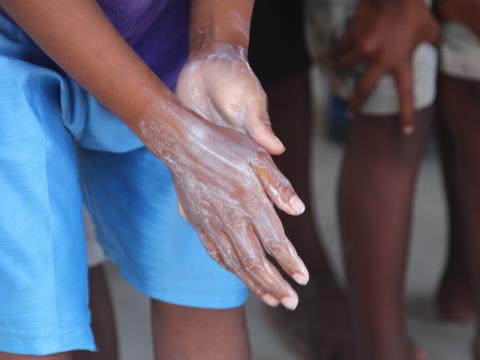World Vision health team supporting communities in suspected meningococcal outbreak area

The Solomon Islands Ministry of Health Surveillance Unit and the World Health Organization are investigating a possible outbreak of meningococcal disease following reports that four children have died in the south-east of the Solomon Islands. The children, aged between 5 and 10, resided in the Kirakira area of Makira province.
Two young children died in their village and two more children at the Kirakira provincial hospital. All four children lived in close vicinity and two children are believed to siblings.
Communities in the north of Makira province, including the World Vision-supported community of Marongasia, are reportedly affected. The Ministry of Health and Medical Services has sent a team to verify reports and provide prophylaxis to people in affected areas.
World Vision’s health team is supporting the Ministry of Health and Medical Services to raise awareness of meningococcal and preventative actions required.
Meningococcal bacteria can cause two serious diseases:
- Meningococcal meningitis: an infection of the covering of the brain and spinal cord
- Meningococcemia: a more serious infection of the blood
Symptoms include high fever, rashes, blisters, headache, abdominal pains, vomiting, spotting under the legs and eyes. Infection is spread by droplets through coughing, sneezing, close contact or skin contact.
Everlyn Darcy, World Vision’s National Health Coordinator, said that World Vision has a health promotion team that is visiting markets and communities to promote proper hygiene practices, demonstrate good hand washing techniques and raise awareness about vaccinations and early intervention.
“We are educating people about the importance of washing their hands with soap and water, not sharing utensils such as cups, bottles, cutlery or lime containers for betel nut,” she said. “We are also telling people to make sure their children are vaccinated and to see a doctor if they have any symptoms or have been in close contact with someone suspected of being infected.”
Advanced stages of meningococcal can occur quickly and can be fatal if not treated early, however meningococcal can be treated with antibiotics if a course of treatment is started early enough.